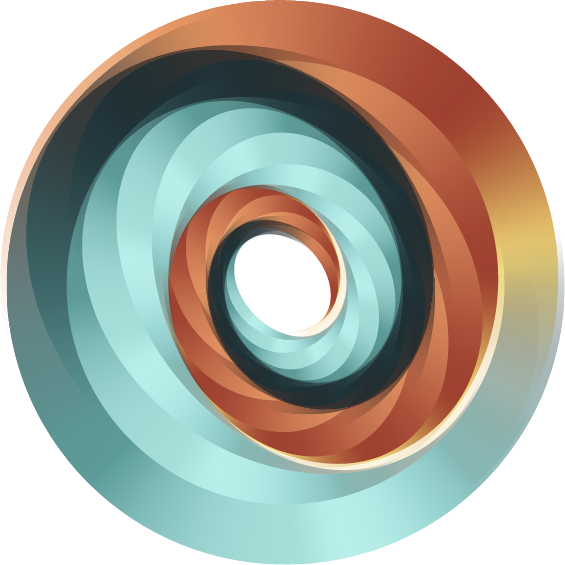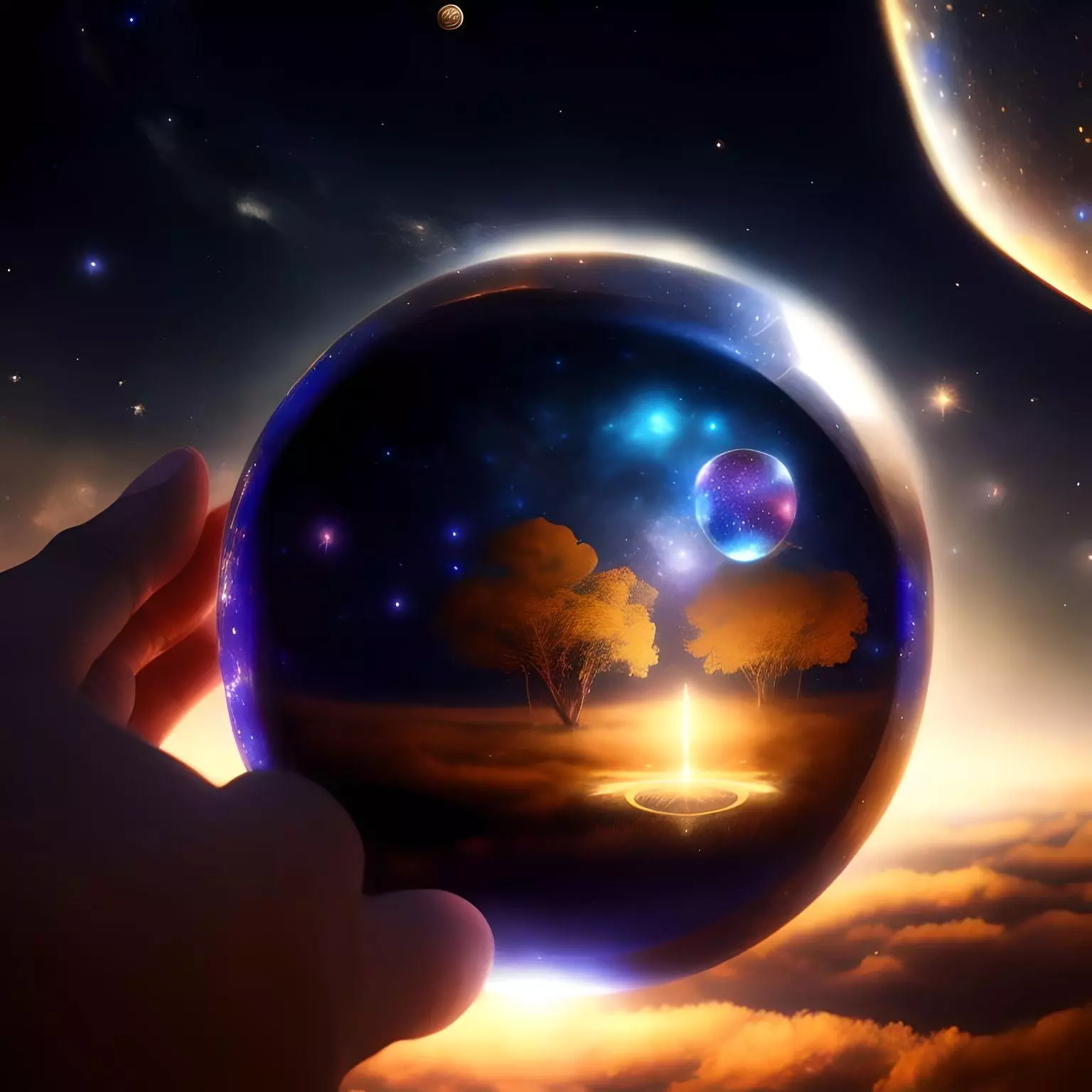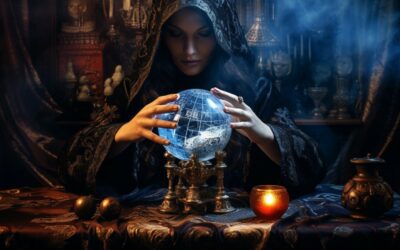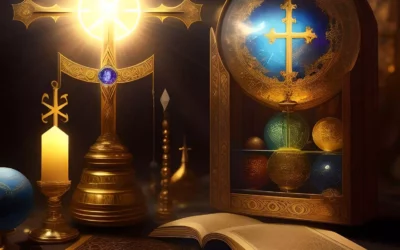Astrology has long been a source of fascination, guidance, and controversy among us. We’ve looked to the stars for answers, sought understanding in celestial maps, and deciphered our destinies from cosmic patterns.
It’s an ancient practice that continues to captivate us today – but is it a form of divination? This question calls for deep reflection on the principles of astrology and its role in our lives.
We understand that perspectives differ greatly when it comes to matters such as these. Some fervently believe in astrology’s predictive capabilities, asserting its validity as a tool for unveiling hidden knowledge and forecasting future events. Others remain skeptical, questioning the scientific basis and predictive validity of this celestial art.
As we delve into this topic with open hearts and minds, we’ll explore various viewpoints on whether astrology can truly be considered a form of divination or not. Let’s embark on this journey together, embracing differing opinions with compassion and wisdom while seeking our own truth amongst the stars.
Historical Context of Celestial Interpretation
In the annals of history, it’s evident that humans have long relied on celestial interpretations, often viewing them as powerful forms of divination. The night sky has served as a canvas for our ancestors to illustrate stories and prophecies, creating a profound connection between mankind and the cosmos.
Ancient practices involving celestial symbolism were common across various cultures; they believed that stars held mystical powers capable of influencing earthly events and human lives.
Our forebears utilized star mapping as an interpretive methodology to decipher the mysteries behind these heavenly bodies. They studied constellations and their positions meticulously, drawing patterns in an attempt to predict future occurrences or gain insights into divine will. It’s fascinating how they viewed astral theology as a bridge connecting terrestrial life with celestial entities. Their faith in this cosmic interaction was unshakeable, grounded in the belief that we’re part of an intricate cosmic design far larger than ourselves.
The wisdom embedded within these age-old practices speaks volumes about humanity’s inherent curiosity and desire for understanding beyond what meets the eye. From ancient times till today, we continue to look up at the stars with wonder – albeit through more sophisticated telescopes now – still seeking answers from these silent guardians of the night sky.
We must remember that while our methods have evolved significantly over centuries, this quest for knowledge springs from humble beginnings under starlit skies where our ancestors sought guidance from celestial bodies with nothing but awe-filled eyes and resolute hearts.
Understanding the Basics of Horoscopes
Dipping your toes into the realm of horoscopes, you’ll find that they serve as personalized maps of celestial bodies at the time of your birth.
Each horoscope is a unique blend of Zodiac symbolism and planetary influences that tells a story about our potential strengths, weaknesses, passions, and fears.
Horoscope creation is an intricate process where astrologers interpret the positions and relationships between the planets, sun, moon, and stars in a birth chart analysis.
We may feel intimidated by this complex system at first glance, but rest assured that with patience and curiosity we can start understanding its profound messages.
As we further explore this cosmic guidebook to ourselves, let’s delve deeper into Zodiac symbolism.
The 12 signs represent different aspects of human life ranging from pioneering Aries to imaginative Pisces.
They’re not just random symbols; instead, each one carries a rich tapestry of characteristics tied to elements like fire or water and modalities such as cardinal or mutable.
Astrological compatibility isn’t solely based on whether two people’s Zodiac signs get along well; it also takes into account how their entire charts interact with each other.
Having understood these basics about horoscopes gives us a fresh perspective on astrology as more than just daily predictions in newspapers or magazines.
It’s an empowering tool offering self-insight that encourages us to embrace all parts of ourselves – even those we might initially shy away from acknowledging.
Remember though that despite planetary influences being potent forces shaping our personalities and destinies according to astrology belief systems, ultimately it’s up to us how we navigate our lives using these cosmic insights.
The Art of Predicting Future Events
While it’s not as simple as gazing into a crystal ball, the art of predicting future events does hold a captivating allure that dates back millennia.
From ancient civilizations seeking guidance from the stars to modern corporations utilizing predictive analytics, humans have always been enthralled by the potential to glimpse into the future.
Prophetic dreams, psychic readings, and forms of fortune telling are often regarded with a sense of mysticism and awe.
But remember, these methods aren’t foolproof; they’re subject to interpretation and can be influenced by many factors outside our control.
As we delve deeper into this fascinating field, let’s not forget that prediction is an art rather than an exact science.
Statistical forecasting may provide us with probability-based insights derived from data patterns and trends, but its accuracy depends on numerous variables that might change unpredictably over time.
Fortune-telling and psychic readings, too, rely on intuitive interpretations rather than concrete evidence.
They offer perspectives based on spiritual connections or energy vibrations which are open to personal understanding and perspective.
Let’s embrace these different ways of foreseeing the future with kindness towards ourselves and others who are navigating their paths in life using such tools as guides rather than strict blueprints for action.
It’s important to remember that while prophetic dreams or psychic predictions may provide some foresight or insight, they don’t necessarily determine our destiny outright.
Our actions today shape our tomorrows far more significantly than any prediction could ever do.
So let’s use these glimpses into possible futures as inspiration for wise choices today, cherishing every moment in our journey through life with compassion and understanding for ourselves and others.
Unveiling Hidden Knowledge
You’ve probably felt that thrilling shiver down your spine when a hidden truth suddenly reveals itself, haven’t you? It’s as if the veil of mystic symbolism that once obscured the world falls away, revealing an intricate web of connections previously unseen.
We see this in astrology, where celestial patterns give rise to esoteric interpretations about our lives and futures. Understanding these occult connections can feel like deciphering an ancient oracle’s script, bringing light to the shadows where uncertainty resides.
In delving deeper into astrology, we encounter psychic phenomena that seem inexplicable yet profoundly meaningful. It’s not uncommon for us to feel a sense of déjà vu or premonition associated with astrological predictions. These experiences aren’t anything to be afraid of; instead, they are invitations to connect with the rich tapestry of wisdom woven by our ancestors. This may seem daunting at first but remember – it is through exploring these mysteries that we grow and learn.
As we continue navigating this labyrinth of cosmic knowledge, let’s bear in mind that every individual journey is unique. Our encounters with ancient oracles in the form of horoscopes or natal charts are personal insights meant to guide us towards self-realization and understanding. The intricate dance between planets and stars might seem distant and cold, but its echoes reverberate within ourselves through our emotions, dreams, and intuitions.
So let’s embrace this exploration together – after all, unveiling hidden knowledge is not merely an act of divination but also a journey toward wisdom and self-discovery.
Arguments Supporting its Predictive Capabilities
It’s undeniable that the cosmos can seem to hold predictive abilities, isn’t it? Just as we’re influenced by our surroundings on Earth, many argue that astrological forces also shape our lives in profound ways.
Planetary influences and Zodiac symbolism aren’t just fanciful concepts for those who believe in astrology; they’re regarded as powerful tools for understanding the intricate patterns of life. We don’t discount the pull of gravity or the changing tides – why should the gravitational pulls and energetic frequencies of other celestial bodies be any different?
A natal chart is a snapshot of where all significant celestial bodies were located at your exact moment of birth. Predictions made through natal chart analysis aren’t meant to seal one’s fate but rather illuminate potential paths ahead. Astrology allows us to see these possibilities with clarity and compassion, helping us navigate life’s challenges and opportunities with greater wisdom. It reminds us that every person carries within them a unique universe, filled with potentials waiting to unfold.
Astrological transits—those times when planets move into new zodiac signs or houses—can feel like pivotal moments ripe for change or introspection. Birth chart analysis during these periods can offer insightful predictions about changes in relationships, career moves, personal growth, and more.
When we understand these transitions from an astrological perspective, we give ourselves permission to go through changes without fear or judgment because we know they are part of our cosmic journey—a journey that is constantly unfolding just like the magic of an ever-evolving sky above us.
Skeptics’ Perspective on Predictive Validity
While we acknowledge the allure of astrology’s predictive capabilities, it’s essential we also lend an ear to the other side of the story.
A significant number of skeptics question astrology’s validity as a form of divination, offering compelling arguments from a scientific and logical standpoint. These critics vehemently argue that astrology majorly rests on shaky grounds when subjected to rigorous scientific debunking.
Astrology has often been scrutinized for its supposed predictive inconsistencies and logical fallacies. Critics point out that predictions made by astrologers can be so general that they could apply to almost anyone, a phenomenon known as the Forer or Barnum effect.
From psychology’s viewpoint, this perceived accuracy is not due to any cosmic influence but instead linked with our cognitive biases. People tend to remember correct predictions while conveniently forgetting incorrect ones—a bias called ‘confirmation bias’. Additionally, people often interpret vague statements in ways that make sense to their personal circumstances—a trait known as ‘subjective validation’.
Weaving through these tangled debates between believers and skeptics, we find ourselves at this juncture where we understand that the matter isn’t black or white; there is a multitude of grays in between.
As much as astrology provides comfort and guidance for some individuals, others see it as an inaccurate system laden with predictive inconsistencies and inherent logical fallacies. We must remember that beliefs are deeply personal matters—what works for one may not work for another—and respect different perspectives even if they challenge our own convictions.
Cultural Influence and Resilience
Despite the skepticism and controversy, celestial interpretations continue to impact societies profoundly, demonstrating an unyielding resilience across centuries and cultures. Astrology’s ubiquity in various forms is a testament to this endurance, with its elements woven into different cultural fabrics around the globe. Whether it’s choosing auspicious dates for ceremonies or making important life decisions based on planetary positions, astrology often integrates seamlessly into our daily lives without us even realizing it.
We see Astrology’s resilience reflected in the way belief systems persist despite scientific advancements that challenge their validity. It’s as if society has a soft spot for these ancient practices that offer comfort and guidance during uncertain times. The societal influence of astrology is perhaps most evident when we look at its role in shaping identities. Many people identify strongly with their zodiac signs, using them as tools for introspection or even as conversation starters.
It becomes clear then why astrology continues to have such a firm grip on us – it offers a sense of belonging and understanding in an often chaotic world. This cultural integration of celestial divination provides individuals with narratives they can relate to while also fostering connections between them. Despite being branded as pseudoscience by skeptics, astrology seems to tap into something deep within us – our desire for meaning and connection – ensuring its survival through countless generations and showing no signs of waning any time soon.
Balancing Perspectives: Believers and Skeptics
After delving into the fascinating world of cultural influence and resilience, we now find ourselves at a crossroads – a place where two different perspectives on astrology meet. Here, believers and skeptics both bring interesting viewpoints to the table.
It’s essential we approach this with an open heart and mind as we explore these contrasting views.
Astrological faith is held dear by many across the globe who see it as a guiding force in their lives, providing direction when things seem uncertain. Yet, there exists an ongoing friction between science versus spirituality that echoes within the astrological realm.
Skeptics often argue against astrology based on scientific rationale, citing lack of empirical evidence for planetary impact debates or disputing zodiac sign stereotypes as baseless generalizations. On the other hand, those who believe in astrology may point to its psychological effects – how it offers comfort, understanding of self and others, or even tools for personal growth.
It’s important to remember that everyone has their own path to tread in life; what brings clarity and peace to one might not resonate with another. The dialogue between believers and skeptics doesn’t need to be a battle but can instead spark curiosity and learning from each side.
Regardless of whether you lean towards accepting astrology or not, engaging with differing viewpoints helps us foster empathy and respect for our shared human experience – all under the same celestial ceiling.
Conclusion
We’ve journeyed through the rich history of celestial interpretation and seen the artistry behind horoscopes. We’ve also touched on both its believers’ convictions and skeptics’ doubts. Additionally, we’ve witnessed how deeply embedded astrology is within our cultures.
Let’s remember that whether or not we view astrology as a form of divination, it has stood the test of time and provided comfort to many. It’s always essential to respect each other’s beliefs while continuing our quest for understanding.




